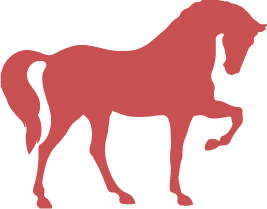CAT: SPECIAL OFFERS FROM THE XMAS CATALOGUE
Here are our leading offers for Cats from the Xmas Catalogue. Prices may vary due to freight. Made and formulated to deliver…
Free Delivery when you spend $49 or more. (Weight Limits Apply – view more)
 Dog
Dog

Shop Tuckers great range of dog food, health care & wellness products today. Delivered or Click & Collect.
 Cat
Cat

Tuckers has a great range of cat food, health care & litter products for your beloved cat. Shop now.
 Horse
Horse

Tuckers carry a huge range of food, supplements, health care, hoof care and grooming accessories. Shop now.
 Chook/Bird
Chook/Bird

Tuckers range of food, accessories & health care products will keep your chooks & birds happy and healthy.
 Small Animal
Small Animal

Shop food and health care products for your little mates @ Tuckers. Delivered or Click & Collect.
 Farm/Garden
Farm/Garden

Tuckers carry a wide range of sheep & cattle products, plus everything you’ll need around the farm or garden.
 Dog
Dog

Shop Tuckers great range of dog food, health care & wellness products today. Delivered or Click & Collect.
 Cat
Cat

Tuckers has a great range of cat food, health care & litter products for your beloved cat. Shop now.
 Horse
Horse

Tuckers carry a huge range of food, supplements, health care, hoof care and grooming accessories. Shop now.
 Chook/Bird
Chook/Bird

Tuckers range of food, accessories & health care products will keep your chooks & birds happy and healthy.
 Small Animal
Small Animal

Shop food and health care products for your little mates @ Tuckers. Delivered or Click & Collect.
 Farm/Garden
Farm/Garden

Tuckers carry a wide range of sheep & cattle products, plus everything you’ll need around the farm or garden.
TAPEWORM
There are several different species of tapeworms that dogs can be infected with. The species of greatest importance include Dipylidium caninum (flea tapeworm) and Echinococcus granulosus (hydatid tapeworm). The flea tapeworm is the most common species of tapeworm that infects dogs but infection with this worm does not usually cause any ill effects. However, the hydatid tapeworm poses a serious health risk to humans, despite not causing any real ill effects to the dog.
The flea tapeworm can grow up to 50cm in length and attaches to the lining of the dog’s intestine using suckers on its head. The body of the tapeworm is made up of a series of segments and lies in the intestine of the dog. Unlike other intestinal worms, the flea tapeworm requires another host (in addition to the dog or cat) in order to complete its life-cycle. This ‘intermediate host’ is the flea.
The life-cycle of the flea tapeworm begins when an adult tapeworm sheds segments containing fertile eggs into the dog’s faeces. The eggs are ingested by flea larvae which feed on the dog’s faeces. Once inside the flea, the eggs hatch and develop into cysts. These cysts are the infective stage for the dog. The dog usually ingests an infective flea whilst grooming. Once inside the dog, the immature tapeworm is released from the cyst within the flea and continues to develop into an adult tapeworm within the dog’s intestine. As the tapeworm matures, it attaches to the dog’s intestinal wall using the suckers on its head and continues to grow. The mature tapeworm sheds segments containing fertile eggs into the faeces and the life-cycle begins again. The entire life-cycle of the flea tapeworm can occur in 2-3 weeks.
Signs that may indicate a tapeworm infection in your dog include scooting and biting at the anus (the segments can stick to the fur around the dog’s anus, causing mild irritation), the presence of tapeworm segments in the faeces (they look like cucumber seeds), the presence of tapeworm segments around or protruding from the dog’s anus.
Prevention and treatment of tapeworm infection involves regular worming with an appropriate tapewormer and good flea control and prevention.
The hydatid tapeworm is less than 1cm long. It also sheds segments, containing fertile eggs, into the faeces of infected dogs but these segments are not easily seen with the naked eye.
As with the flea tapeworm, the life-cycle of the hydatid tapeworm also involves an intermediate host. The intermediate host for the hydatid tapeworm is most typically a sheep but it may also be a cow, pig, kangaroo or wallaby.
The dog passes out infective segments onto pasture in its faeces, these segments are then ingested by the intermediate host as it is feeding. The eggs, once ingested, hatch and develop into large cysts in the offal (liver, kidneys and lungs) or muscle of the sheep.
If a dog is fed uncooked offal or meat containing tapeworm cysts, these cysts release the immature tapeworm into the gut of the dog. The immature tapeworm attaches to the lining of the dog’s intestine, where it continues to mature and the cycle is complete. The life-cycle of the hydatid tapeworm takes approximately 6-9 weeks.
The hydatid tapeworm is of particular importance because it can cause serious disease in humans. If humans ingest eggs shed in the faeces of an infected dog (e.g. from their hands or unwashed vegetables that may have been contaminated by dog faeces), these eggs will hatch and develop into cysts within the tissues or organs of the human.
These cysts interfere with the normal functions of the tissue or organ in which they develop, leading to malfunction and disease. The only treatment option for humans is surgical removal of the cysts. Humans cannot be infected by eating offal or meat containing tapeworm cysts from infected sheep.
Rural dogs are at greater risk of tapeworm infection but urban dog owners should remain vigilant. Hydatid cysts in sheep meat or offal are killed by cooking or boiling and are no longer infective.
Hydatid tapeworm is a more important consideration in the cooler regions of Australia. Tasmania is considered ‘hydatid-free’ and has strict quarantine regulations to try to ensure that it remains so.
Prevention is always better that the cure in relation to disease caused hydatid tapeworms – in dogs or in humans. Talk to your vet and doctor about their recommendations for your circumstances and in relation to travelling with dogs.
HOOKWORM
Hookworm infection can be fatal. Hookworm can infect dogs and cats of all ages but are most commonly found in puppies.
Hookworm larvae are found in the soil and are ingested or can penetrate the dog’s skin through the feet and legs. Puppies can become infected by suckling their mother’s milk or through the placenta before they are born. The hookworm attaches itself to the intestine and sucks blood.
The main danger with hookworm is the potential for anaemia and diarrhoea. Signs of hookworm infection in dogs and cats include weight loss, poor appetite, a ‘big belly’, black, tarry faeces, diarrhoea, depression and lethargy.
ROUNDWORM
Roundworm is also potentially fatal. Roundworms affect dogs and cats of all ages, however puppies and kittens are the most susceptible to infection and disease. The eggs of these worms can be ingested from the environment or larval stages can be passed through the placenta or mother’s milk to the puppy or kitten.
Although roundworm does not suck blood, they do attach to the lining of the animal’s intestine and feed on the digested food in the intestine. If left untreated, roundworm can obstruct the flow of food through the intestine. This can lead to a blockage of the intestine and this may be fatal.
Signs of roundworm infection in dogs and cats may include a dull coat, coughing, lack of growth, diarrhoea, vomiting, poor appetite, lethargy, weight loss and a ‘big belly’. In extreme cases, the worms can block the intestine and this may lead to rupture of the intestine and leakage of the intestinal contents into the abdomen (peritonitis). This is a very serious complication and can be fatal.
WHIPWORM
Whipworm parasitic life stages can only be ingested and cannot be passed on to puppies or kittens through their mother’s milk. Whipworm live in the large intestine, mainly in the caecum.
These worms attach to the wall of the intestine and cause irritation and inflammation. Signs of whipworm infection in dogs and cats may include intermittent diarrhoea, often with mucus and fresh blood, dehydration and debilitation. In severe infections anaemia may also develop. In extreme cases, death may occur.
Shop now: Virbac Products
Entire range - quick and secure delivery
Buy securely online and pickup at your local store
Call your local store and come on down to pickup
© 2026 Tuckers Pet & Produce.
